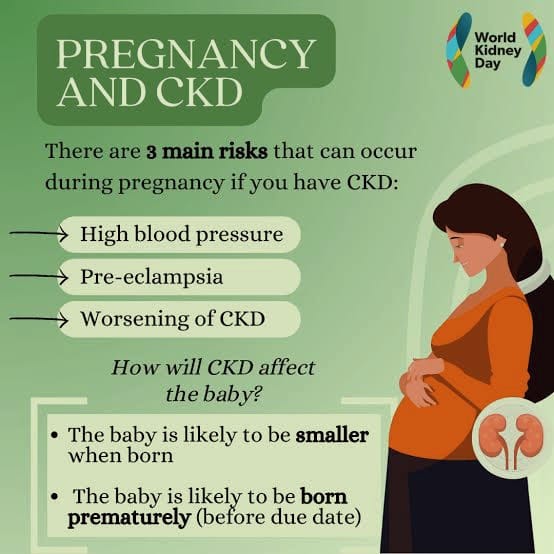Sleep deprivation for new parents
Introduction
Sleep deprivation is a hallmark challenge of new parenthood, universally acknowledged yet often underestimated in its potential to deeply affect families. The arrival of a newborn disrupts previously routine sleep patterns, introducing a level of fatigue that many parents find surprising in both its intensity and persistence. This period of adjustment is characterized by frequent awakenings throughout the night for feedings, diaper changes, and soothing, leaving parents searching for elusive rest.
The importance of sleep extends far beyond mere physical rest; it’s a critical component of overall health and well-being. Adequate sleep supports immune function, helps in the repair and recovery of the body, and is essential for cognitive processes including memory, learning, and emotional regulation. For new parents, the impact of sleep deprivation can be profound, affecting not just their ability to care for their newborn, but also influencing their mental health, relationships, and quality of life.
Recognizing the challenge of sleep deprivation is the first step toward managing its impacts. It is a common experience shared by new parents worldwide, a rite of passage into parenthood that, despite its difficulties, can be navigated with strategies and support. As we delve deeper into understanding sleep deprivation, its effects, and ways to mitigate its impact, it’s important to remember that this phase, although demanding, is temporary. With the right approaches and adjustments, parents can find ways to reclaim rest and maintain their well-being during this transformative time.
Understanding Sleep Deprivation
Definition and Causes
Sleep deprivation occurs when an individual does not get enough sleep to feel awake and alert. This condition is especially common among new parents, who frequently face disrupted sleep patterns due to the needs of their newborn. Causes of sleep deprivation in new parents include:
Frequent Feedings: Newborns require feedings every two to three hours, including throughout the night.
Baby’s Sleep Cycle: Unlike adults, newborns spend more time in rapid eye movement (REM) sleep, which is a lighter stage of sleep, making them more prone to waking.
Comforting the Baby: Babies often wake up due to discomfort from gas, colic, or the need for a diaper change.
Parental Anxiety: New parents may experience anxiety about their baby’s health and well-being, which can keep them awake even when the baby is sleeping.
Short-term Effects
The immediate effects of sleep deprivation include:
Increased Irritability: Lack of sleep can make parents more likely to snap at minor annoyances.
Decreased Concentration: Sleep deprivation affects cognitive function, making it harder to focus and make decisions.
Weakened Immune System: Lack of sleep can compromise the immune system, making parents more susceptible to illnesses.
Emotional Fluctuations: Parents may experience heightened emotions or mood swings.
Long-term Effects
Prolonged sleep deprivation can lead to more serious health and mental health issues, including:
Chronic Health Problems: Conditions such as obesity, diabetes, cardiovascular disease, and high blood pressure have been linked to chronic sleep deprivation.
Mental Health Issues: Ongoing lack of sleep can contribute to depression, anxiety, and increased stress levels.
Parental Effectiveness: Over time, sleep deprivation can affect a parent’s ability to care for their baby effectively, potentially impacting bonding and the baby’s development.
Addressing sleep deprivation is crucial for new parents to ensure their well-being and their ability to provide the best care for their newborn. Recognizing the causes and effects is the first step toward finding solutions to improve sleep and overall health.
Strategies for Managing Sleep Deprivation
Prioritizing Sleep
Recognizing Sleep’s Role: Understand that sleep is not a luxury but a necessity for health, much like eating or breathing. Acknowledging its importance can help parents feel less guilty about prioritizing rest.
Communicate About Sleep Needs: Partners should discuss and acknowledge each other’s sleep needs, agreeing on a plan that prioritizes rest for both.
Sharing Nighttime Duties
Taking Turns: Partners can alternate nights or parts of the night for attending to the baby, allowing the other to enjoy longer stretches of uninterrupted sleep.
Use of Bottles: Even if the baby is breastfed, considering pumped breastmilk or formula for one nighttime feeding by the non-nursing partner can give the nursing parent a longer rest period.
Napping
Nap When the Baby Naps: While it may be tempting to use this time to catch up on chores or personal time, taking short naps can significantly reduce sleep debt.
– Create a Conducive Napping Environment: Ensure a quiet, comfortable space for napping during the day, using blackout curtains if necessary to mimic nighttime conditions.
Optimizing the Sleep Environment
Comfortable Bedding: Invest in a comfortable mattress and pillows to make the sleep you do get as restorative as possible.
Minimize Disruptions: Use white noise machines to drown out small noises that could wake you. Consider separate sleeping arrangements temporarily if one partner’s sleep is significantly disturbed by nighttime feedings.
Temperature and Light: Keep the bedroom at a comfortable, cool temperature and use blackout curtains to keep it dark, signaling to your body it’s time to sleep.
Creating a Bedtime Routine
Routine for Parents: Just as babies benefit from a bedtime routine, so do adults. Engage in relaxing activities before bed to signal to your brain that it’s time to wind down.
Limit Screen Time: Reduce exposure to screens at least an hour before bed, as the blue light emitted can interfere with the ability to fall asleep.
Implementing these strategies can help manage the inevitable sleep deprivation that comes with parenting a newborn. By making sleep a priority, sharing responsibilities, and creating an optimal sleep environment, parents can improve their sleep quality, even if the quantity is still less than ideal.
Adjusting Expectations
Temporary Phase
Recognize that the intense initial phase of sleep deprivation is temporary. Most babies start to sleep for longer stretches at night as they grow older, gradually allowing parents to reclaim more consistent sleep patterns.
Adjusting expectations around sleep and productivity during these early months is crucial. It’s a time of adjustment and learning, not only for the baby but for parents as well.
Self-Compassion
Practice self-compassion by acknowledging your best efforts under challenging circumstances. Being hard on yourself for feeling exhausted or less productive only adds unnecessary stress.
Give yourself permission to rest and take breaks. Remember, taking care of yourself is an essential part of taking care of your baby.
Conclusion
The arrival of a new baby is a joyful, albeit exhausting, period in a parent’s life. Sleep deprivation is a common challenge, but by prioritizing sleep, sharing responsibilities, and optimizing the sleep environment, it is possible to manage and even mitigate some of its impacts.
Embracing a mindset of flexibility and self-compassion during these early months can make a significant difference. Understand that this phase, while challenging, is temporary. Adjusting your expectations around sleep and productivity can help reduce stress and enhance your ability to enjoy this unique time with your newborn.
Remember, taking sleep seriously is not just about your health but also about being the best parent you can be. Seeking balance and support is key to managing sleep deprivation. Don’t hesitate to lean on your partner, family, friends, and professionals for help. Together, you can navigate the sleepless nights, finding joy and fulfillment in the journey of parenthood.






